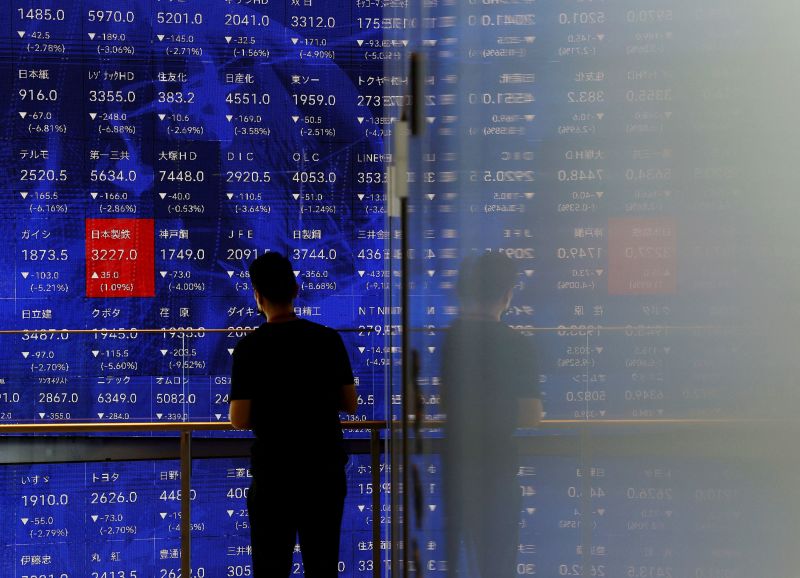
In a dramatic turn of events, Japan's Nikkei 225 stock index has plummeted, marking one of its most significant drops in recent years. The steep decline, reported on August 4, 2024, reflects broader turbulence in global markets as economic uncertainties escalate. This plunge in the Nikkei is being closely watched by investors and analysts alike, given Japan's critical role in the global economy.
The Nikkei 225, a benchmark for Japanese stock performance, witnessed a substantial fall, with the index down by over 3% at its lowest point. This sharp decrease is part of a larger trend of market instability that has been affecting major indices worldwide. Analysts attribute the Nikkei's downturn to a mix of domestic economic concerns and external pressures, including rising geopolitical tensions and fluctuating global trade dynamics.
A significant contributor to the Nikkei’s troubles is the ongoing apprehension about the health of Japan's economy. Recent economic data has indicated slower-than-expected growth, raising fears of a potential recession. Additionally, the Japanese yen has weakened against other major currencies, exacerbating the financial strain on exporters and contributing to market instability.
The global financial landscape is also in turmoil, with stock markets in the United States and Europe experiencing heightened volatility. In the U.S., the ongoing debate over economic policy and potential recession risks has led to erratic market behavior. Recent updates suggest that the U.S. economy may be approaching a critical juncture, with analysts predicting a possible downturn if current economic pressures continue.
In Europe, concerns about inflation and economic stagnation are similarly impacting market performance. The interconnected nature of global markets means that distress in one region can quickly ripple across borders, affecting investor sentiment worldwide. This has been evident in recent trading sessions, where international stock indices have mirrored the volatility observed in the Nikkei.
The current market environment is prompting many investors to reconsider their strategies. The search for safer investment options is intensifying, with a noticeable shift towards assets perceived as more stable, such as gold and government bonds. This shift reflects a broader anxiety about the potential for prolonged economic instability and its impacts on financial markets.
Despite these challenges, some analysts remain cautiously optimistic. They argue that while the current turbulence is severe, it could present opportunities for investors who are prepared to navigate the risks. They suggest that focusing on long-term investment strategies and maintaining a diversified portfolio may help mitigate some of the adverse effects of the current market conditions.
In the coming weeks, market participants will be closely monitoring economic indicators and policy announcements that could influence the direction of the markets. The potential for further economic slowdown or recession remains a significant concern, and how governments and central banks respond will likely play a crucial role in shaping market trajectories.
As the situation evolves, staying informed and adaptable will be key for anyone involved in the financial markets. The interplay of domestic economic data, global trade dynamics, and geopolitical factors will continue to drive market behavior, making it essential to remain vigilant and responsive to emerging trends.




0 Comments